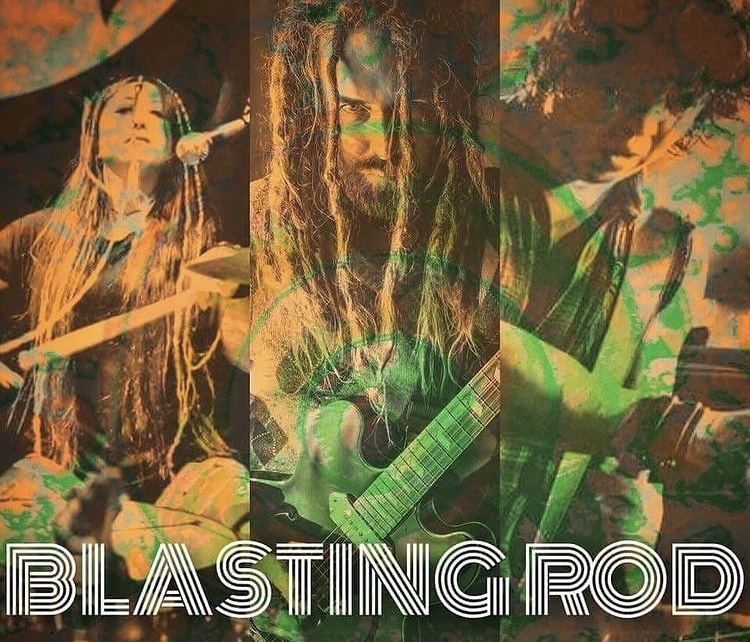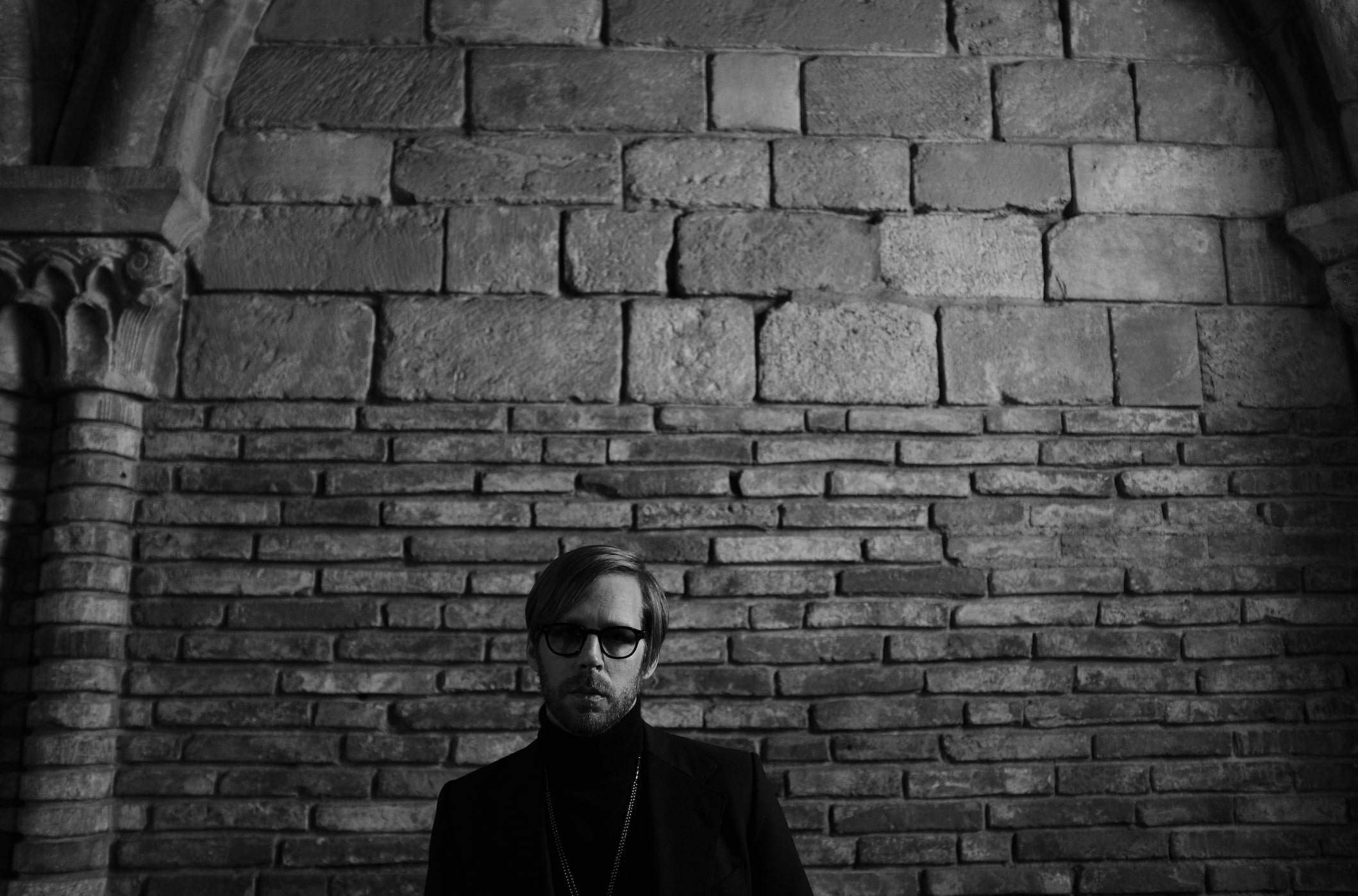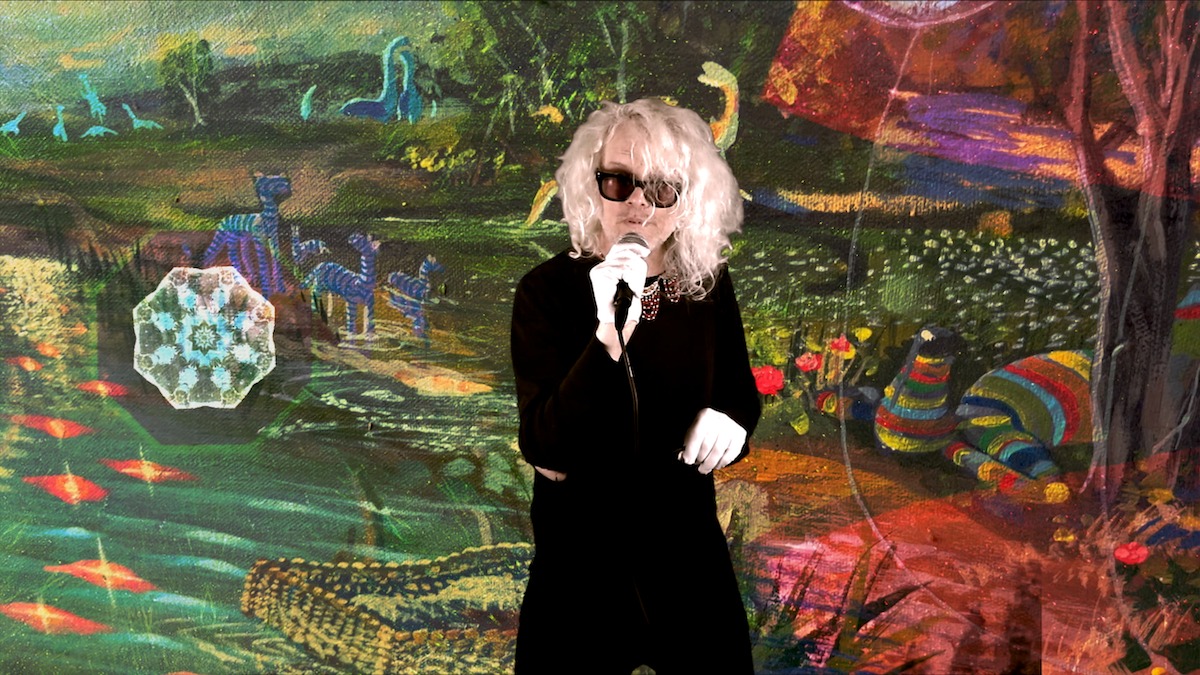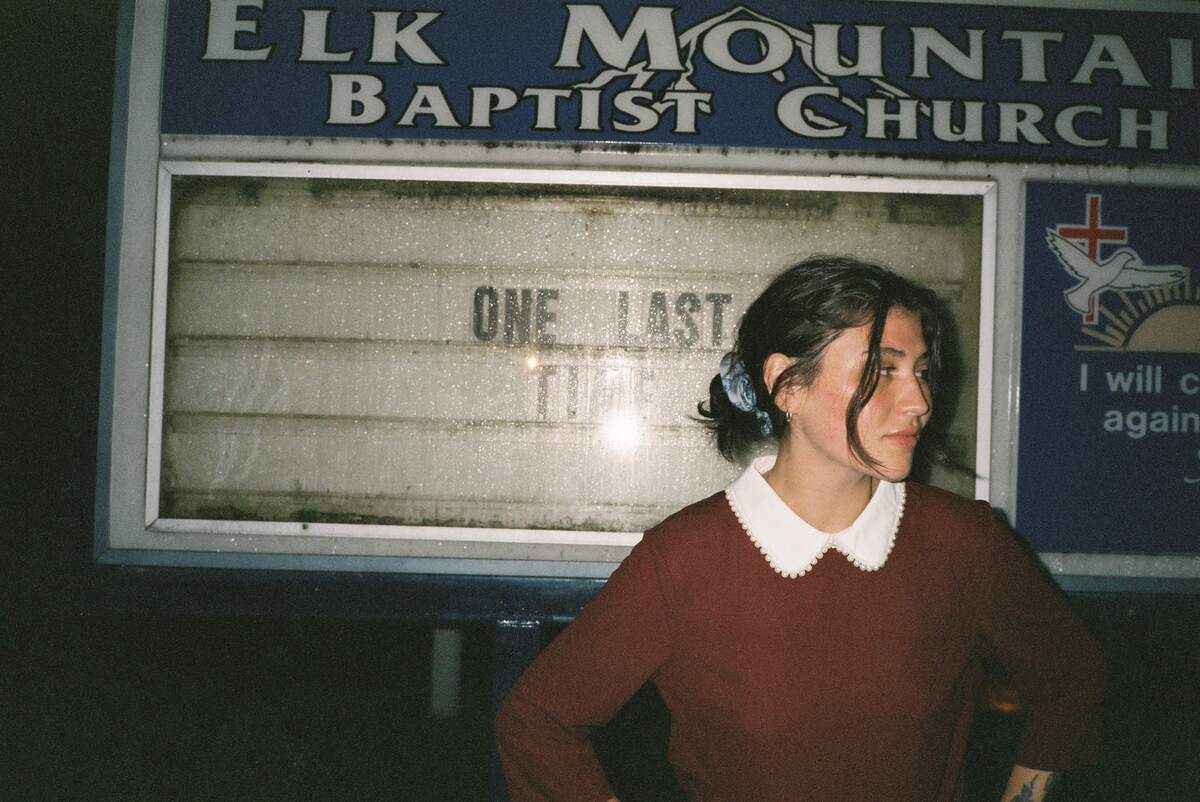Blasting Rod | Interview | “Fuzzed out psychedelic atmospheres from Japan”
Originally a solo project that expanded into an improvisational collective, Shah began to mix original compositions with improvisation under the name of Blasting Rod in 2013.
Blasting Rod has been active in various guises since July 2006. They began as an improvisational trio. ‘III’ is their latest album, and actually the third chapter for that matter. It’s full of fuzzed out psychedelic atmospheres.
Sven Shah: guitar/ vocal / et cetera
Yoshihiro Yasui: bass
Chihiro Suzuki: drums / percussion
We hooked up via email and I got the chance to ask a few questions…
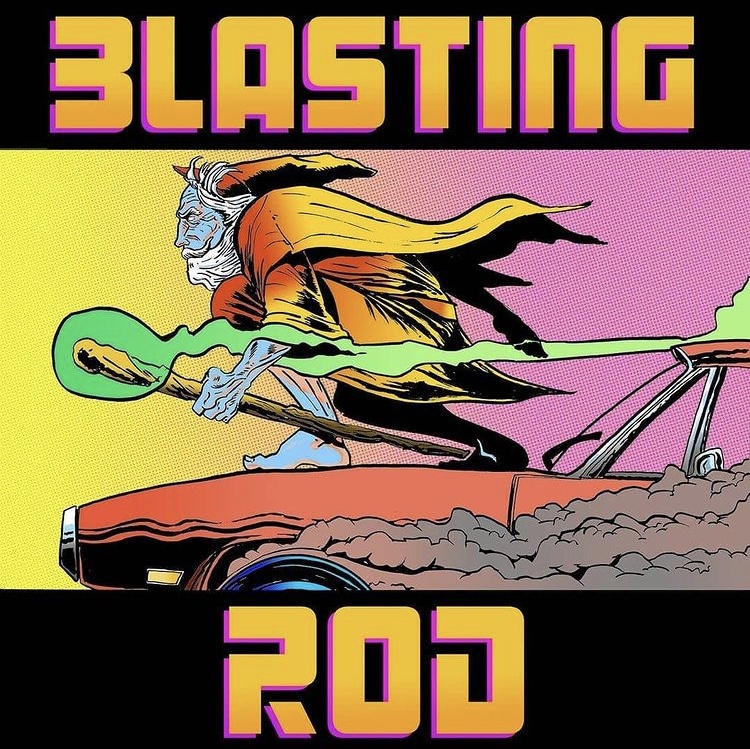
I really enjoyed your last album, how has the response been from others?
Sven Shah: Wow. Thank you. I’ve been completely caught off guard at finding that people we don’t actually know are interested in listening to our music. “Surprise” is a word that I see frequently. The album has also been described online as “insanity”, in a way that is a little difficult to read the nuance of, as well as by phrases like, “an experience”, and “a universe”. People have been throwing out genres like “jazz fusion” and “prog” too, which pleased my inner Mahavishnu fan, and left me wondering, “Are we a prog?” but didn’t fool my super-ego which knows we’re just a contrary garage band.
Chihiro Suzuki: It was fun. I think the response from others has been good.
Yoshihiro Yasui: It seems like people who’ve bought it are enjoying it.
Can you tell us a bit about the recording process for that one?
Sven Shah: This is gonna be a really long story.
At first we went into a big room to do three days worth of sessions with “Dabo” Tanaka. He’s known for working with psychedelic shoegazers, Katsurei (割礼), but he really got my attention as an engineer with his work on the first Ari Jigoku Ten Goku (蟻地獄天国) album. It’s one of those recordings where it sounds like the drums are right there in the room with you. He’s kind of a disciple of Conny Plank, but once I had my way with the recordings, I’m not sure that’s really evident.
At my insistence, the band set up together in that room and basically recorded live in the studio using eye contact, the talk-back mics, and no click, totally not doing it right. The long solo at the end of ‘Weedgrown Rocks’, for example, was recorded live with the drums and bass. The core trio is all one take. I was looking for that sort of real interaction and spontaneity.
There wasn’t much of a plan for the album, and certainly no release schedule. We just recorded the material we had, and sorted through it later. Much later.
I’d wanted to settle in for a long haul of layering various overdubs with Yukito Okazaki (Eternal Elysium) at his more flexible Studio Zen, but he was in Australia working with Enough to Escape. In the meantime we got into a period dominated by doing shows, one of which produced the recording for the Blasting Rod ‘II’ live album at Club Chaos in Yok’ka’ichi. After that Chihiro and I went on vacation to a few pilgrimage sites in California, on either side of 5 or 6 days in Vegas, which is where we happened to meet Buddy Donner from Glory or Death Records.
Almost a full year after the first session, we went back to the big room with Dabo to work on adding various orchestration. Yukito Okazaki was again pretty much booked up, this time in the producer’s chair for a Revenge.69 album, so after a couple of sessions at Zen where he made time to help me tidy up some rough mixes, I started recording alone, both at my makeshift home studio, and at 246 rehearsal studio. I also went out to Asuke Village to record vocals and acoustic guitars with Nori at Studio Dub Reel.
I spent nearly a month trying to get the mix under control. Once I was reasonably satisfied, I got in touch with Buddy to find out where he was pressing the beautiful records his label released. He offered to throw in with us and became our US label/distributor, taking the lead with Gotta Groove press in Cleveland, which, it turns out, was one of the companies I’d looked at briefly when we were starting the project two years earlier.
Chihiro Suzuki: We did the basics, bam, then overdubbed some guitar, vocals, percussion, sound effects, et cetera. It sat for a year, and then we finished it.
Yoshihiro Yasui: In terms of the bass part, I work out my lines by jamming during recording.
Tell us a bit about you forming your own record label?
Sven Shah: This one’s pretty straight forward. We self-financed the green snail Blasting Rod CD and realized we’d started a label. I threw together a logo and some SNS pages and voila! I mean, it’s still very much a cottage industry at this point. We aren’t looking to release anyone else’s music, and thankfully no one is asking! I use it as a platform to release digital downloads of stuff from old cassette tapes, and experimental solo/side projects, but Blasting Rod is the only thing we’re doing physical media for. I’d been into releasing ultra-limited edition CD-R for a long time, but the others were, like, dude, let’s go legit.

How is the music scene in Japan recovering from the crazy last year and a half we’ve all had with the pandemic?
Sven Shah: That’s a complicated one.
Most venues turned to merchandise sales, and many opened web-shops for the first time ever. Some got into the streaming game, but four places we used to play went out of business in the past year. Bands usually had to fill a venue beyond capacity to make any money from a show before. With current capacity limitation guidelines, organizing shows is more of a charity activity.
Other than a couple months in the spring of 2020 Japan hasn’t really had the total shutdown response you may have seen elsewhere. Last summer was mostly announcements of indefinite postponements and cancellations, but shows started happening more regularly in the fall of 2020. A lot of bands have had a hard time keeping it together because employers have sometimes imposed harsher restrictions than the government. We started having rehearsals again in August of 2020 and have had shows of some sort every month since January 2021.
Most venues do temperature checks and require masks on entry. Sanitizer at the door is ubiquitous. Bigger venues might have staff policing loud voices and post-beer mask refitting, but underground venues don’t have those resources. Occasionally alcohol is prohibited at restaurants and venues, depending on the level of emergency the local government has declared. It’s a moving target, but usually guideline changes are announced a week or so before being implemented. You might end up with a 4pm show time and the venue being forced to close by 8. People still have work until 6 or 7pm during the week, though. Even before the pandemic, interest in alternative anything seemed to be on the decline, but maybe it has just pivoted away from guitars and drums to the electronic scene. I think that’s why you would see bands like AMT [Acid Mother Temple] spending three months straight on the road in the US, but only playing one or two shows all year in Japan.
Chihiro Suzuki: It has not recovered. The underground scene is active as usual. The major scene has always operated its own peculiar Japanese rules of conduct, and continues to do so.
Yoshihiro Yasui: We’re not back to the pre-pandemic situation, but everyone is maintaining various degrees of basic activity as much possible.
Who would you say are your biggest influences in the music world?
Sven Shah: Led Zeppelin (Every aspect of the group’s work. Don’t get me started. I’m obsessed.)
Grateful Dead (All eras, the whole deal + Mickey Hart side projects.)
The Beatles (Including solo projects; I mean, they touched on everything, really. Major gateway.)
John McLaughlin (With Miles, Mahavishnu, Shakti, and the Trio with Trilok Gurtu.)
Miles Davis (Especially the 70’s electric period, but his entire career, really.)
Pink Floyd (‘From The Piper at the Gates of Dawn’ to ‘The Wall’…not just the guitar playing, but woodshedding with Gilmour.)
Frank Zappa (Sometimes I love him, sometimes I don’t. His autobiography is brilliant.)
Sleep (Belated discovery via Julian Cope review revived interest in bloody-minded rock.)
The Beastie Boys (Sometimes it’s just all about good times and a good groove.)
Fu Manchu (Ditto, but with more fuzz.)
Rusted Root (More drums!)
CCR (First guitar lesson. You only need three chords to make a great record.)
40 Stories (Micah Gaugh, Dan Bodwell, and Kevin Shea introduced me to / real/ free improv.)
My influences are often people that I make music with. I’ve always been fortunate to have close friends with whom we could expand one another’s musical awareness. My parents were both highly indulgent of my interest in music, in many cases stoking that interest, and I’ve been lucky enough to have some really interesting music teachers in my life too. As far as influences from the greater music world are concerned I guess this is a pretty good short list. I’d go deeper, but it’s gonna start to sound pretentious.
Chihiro Suzuki: Bonzo!
If you could collaborate with any current musicians who would it be?
Sven Shah: May I use this opportunity to officially ask Jimmy Page to produce our next album?
Chihiro Suzuki: Mad Alchemist Liquid Light Show.
Yoshihiro Yasui: No one in particular.
“I look at songwriting more like composition”
Do you generally all get in a room and write new material together?
Sven Shah: It’s a little bit of both, but I probably bring in 60 to 70% of the material.
It’s then usually a case of, “I’m gonna play this. What are you gonna do?” We hash out arrangements together just by playing the parts over and over in rehearsal. Sometimes I bring in old songs I’ve had in my pocket for years.
I look at songwriting more like composition, in the sense that if I didn’t hand the bassist a chart and say, “Play this,” then he’s writing his own part. Chihiro usually cues transitions intuitively. That ends up developing the song from a couple of informal ideas into something with a dynamic structure.
We do a lot of improvising during rehearsals, but I’m not vigilant enough about going over rehearsal recordings to make that a consistent part of our writing process. Sometimes it is. I mostly think of those jams as spontaneous composition; something we might just master and release as is, someday.
Yoshihiro leads his own band called Crocodile Bambie, so his main songwriting efforts go into that, but as I said, he contributes all his own bass parts and chimes in occasionally with an opinion about an arrangement or an approach. Any good bassist is usually like an interpreter between the guitarist and the drummer, so the songwriting process is kind of a feedback loop that usually settles into harmonic balance.
The lyrics are mine. For better or worse, they seem to trust me. I wrote lyrics with Yoshihiro for Bambie’s full length, too. I’ve also co-written two albums for Outrage, and worked with Rachel Mother Goose, and We Are M’F’n Johnny in more of an advisory role.
Chihiro Suzuki: Sven does most of the songwriting. The lyrics are Sven. I offer advice to the extent of saying something like, “Wouldn’t it be better if we did it like this?”
Yoshihiro Yasui: In terms of the bass part, once we’ve got the song’s basics, then it’s put together by jamming along in the studio.
Can you each individually give us your top 5 musical artists of all time?
Sven Shah: This must be the most obvious list you’re ever gonna see.
Led Zeppelin, The Beatles, Miles Davis, Pink Floyd, and Grateful Dead.
Chihiro Suzuki: Grand Funk, Zep, Pink Floyd, Sabbath, and Lunachicks.
Yoshihiro Yasui: The Beatles, Pink Floyd, Phish, The Doors, and Black Sabbath.
Can you each give us an album recommendation that you’ve recently discovered?
Sven Shah: ‘Find the Others’ by Shiva the Destructor on the Ukrainian Robust Fellow label.
Chihiro Suzuki: I’ve recently rediscovered ‘Burn’ by Deep Purple. Listening to it again it’s clear that every song really is well done.
Yoshihiro Yasui: Nothing in particular.
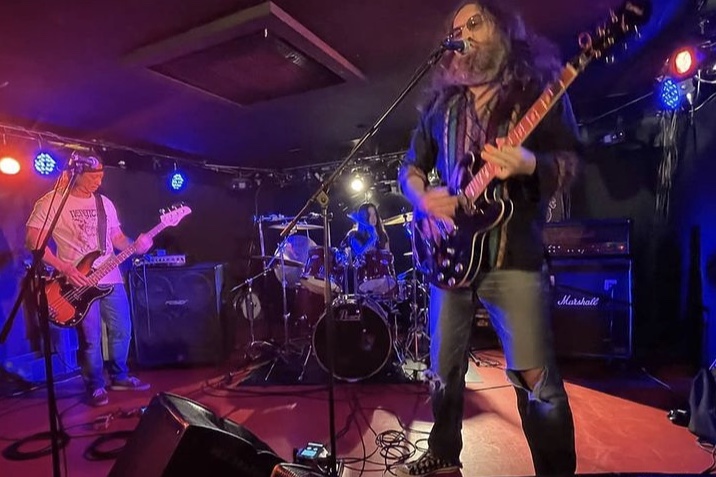
What are you currently working on?
Sven Shah: The first recording sessions for a new album were last weekend. With there being an apparent slow-down in vinyl production, it looks like we’ll be working to a deadline this time so we can get in the queue asap. I’m starting to lean toward initial release on some other format, however. December 2022 is kind of a depressing release schedule for something that is almost done in August 2021.
I also just finished tweaking the artwork for a Glory or Death repress of ‘Blasting Rod III’. Didn’t really see that coming, but it’s good to know someone thinks there should be more of those.
Chihiro Suzuki: New album.
Yoshihiro Yasui: We have just started the recording of new material.
Ross Beattie
Blasting Rod Facebook / Instagram / Twitter / SoundCloud / Bandcamp
Low&Slow.Disk Facebook / Instagram / Twitter / YouTube
Sven Shah / Bandcamp / SoundCloud / Mixcloud
Mr. Busaichedelic San SoundCloud / Bandcamp
Vacum Bandcamp
BS Entertainment (Precursor to Low&Slow.Disk) SoundCloud
Glory or Death Records Facebook / Instagram / Twitter / BigCartel / Bandcamp
Headline photo: Blasting Rod by Brian Miller

